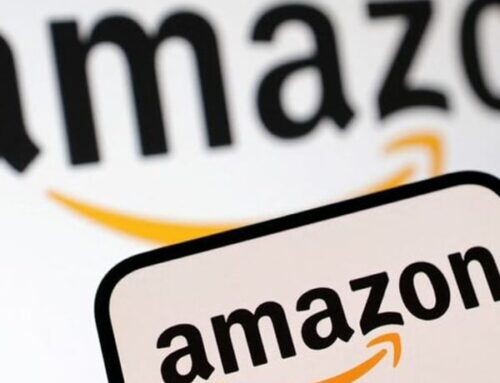Despite Cutting Apple’s Price Target, Wedbush’s Dan Ives Remains Bullish on the Stock for
April 22, 2025
Investors may not know what to make of Apple (AAPL -1.81%) stock. Although it attained the world’s largest market cap through inventing new, tech-related products, growth and innovation have slowed, and many analysts have soured on the stock.
This is not the case with Wedbush’s Dan Ives, who continues to hold to a long-term bullish call on Apple stock. Is he making the right call? Let’s take a closer look.
The case for Apple
Ives seems to base his case for Apple stock primarily on the success of the iPhone. He believes that, ultimately, tariffs will not be high enough to impact iPhone sales. Ives also predicts that an AI-driven upgrade cycle will stoke iPhone sales when the company releases the iPhone 17 later this year.
Indeed, for all of Apple’s challenges, few can dispute that the iPhone made Apple one of the world’s top stock investments of the early 21st century. That innovation pioneered the smartphone industry, and despite the premium pricing on its device, it claims about 23% of the global market share, according to Counterpoint Research. That places it well ahead of archrival Samsung at 16%.
In the first quarter of fiscal 2025 (ended Dec. 28, 2024), the iPhone made up almost 56% of Apple’s revenue. It was 51% of revenue in fiscal 2024. This is after the previous 5G upgrade had run its course.
Additionally, the evolving tech landscape may bolster Ives’ bull case. As AI technology becomes cheaper and more accessible, it will reinforce the aforementioned upgrade cycle, which should boost Apple’s revenue and profits.
Furthermore, the company holds more than $141 billion in liquidity. To put that into perspective, fewer than 80 of the approximately 10,000 companies trading on major U.S. exchanges today hold a higher market cap than that figure.
Thus, Apple can invest more heavily in capital expenditures and buy out successful smaller companies. Such optionality makes it difficult to count Apple out, even if its next steps are uncertain.
Why investors may question its success
However, despite the massive cash hoard, Apple cannot get around the fact that its chief inventor, Steve Jobs, passed away 14 years ago, and its pace of innovation slowed dramatically since that time.
One also has to wonder whether Apple deployed its aforementioned liquidity effectively, since it has not translated into higher revenue growth. In fiscal Q1, revenue of $124 billion grew by only 4% yearly. This is not an anomaly, as fiscal 2024 revenue rose by only 2%.
This is not the case with other maturing tech giants, even some that may not be as innovative. Google parent Alphabet grew revenue by 14% in 2024, while Amazon‘s net sales increased 11%, far outpacing Apple.
Additionally, most of Apple’s segments revolve around devices, namely the iPhone, Mac, iPad, and wearables, which are subject to tariffs. Even though Ives only predicts minimal disruption on this front, the effect of these levies remains unknown.
Apple Services is the only segment that has grown revenue by double-digit percentages. It includes offerings such as iCloud, Apple TV+, and Apple Pay. While these functions might strengthen Apple’s iOS ecosystem, that is likely the extent of its competitive advantage. Since other companies offer comparable products, one has to wonder how much Apple Services can help the overall stock.
Amid those challenges, investors must also contend with its price-to-earnings (P/E) ratio of 31. While that earnings multiple has fallen since late last year, it is well below the P/E ratios for most of the 2010s. At that time, Apple typically traded under 20 times earnings, even as revenue grew by double-digit percentages. When considering today’s slower revenue growth, one has to wonder whether Apple stock is worth this premium valuation.
AAPL PE Ratio data by YCharts.
Should I remain bullish on Apple stock?
Under current conditions, Apple stock looks more like a hold than a buy.
Admittedly, when considering the enduring strength of the iPhone and massive liquidity, investors should not rule out a comeback in Apple stock.
However, investors are also right to ask if and how such a comeback would occur. Apple is no longer the innovator it was when Jobs was at the helm. Moreover, Apple’s revenue growth lags that of mega-tech peers, while its stock sells at a higher valuation. Even though an AI upgrade cycle could boost iPhone sales, it is unclear how much that would increase revenue growth.
Hence, until Apple can offer investors a clearer path to growth or a significantly lower valuation, investors are likely to see higher returns in other stocks.
John Mackey, former CEO of Whole Foods Market, an Amazon subsidiary, is a member of The Motley Fool’s board of directors. Suzanne Frey, an executive at Alphabet, is a member of The Motley Fool’s board of directors. Will Healy has no position in any of the stocks mentioned. The Motley Fool has positions in and recommends Alphabet, Amazon, and Apple. The Motley Fool has a disclosure policy.
Search
RECENT PRESS RELEASES
Related Post



